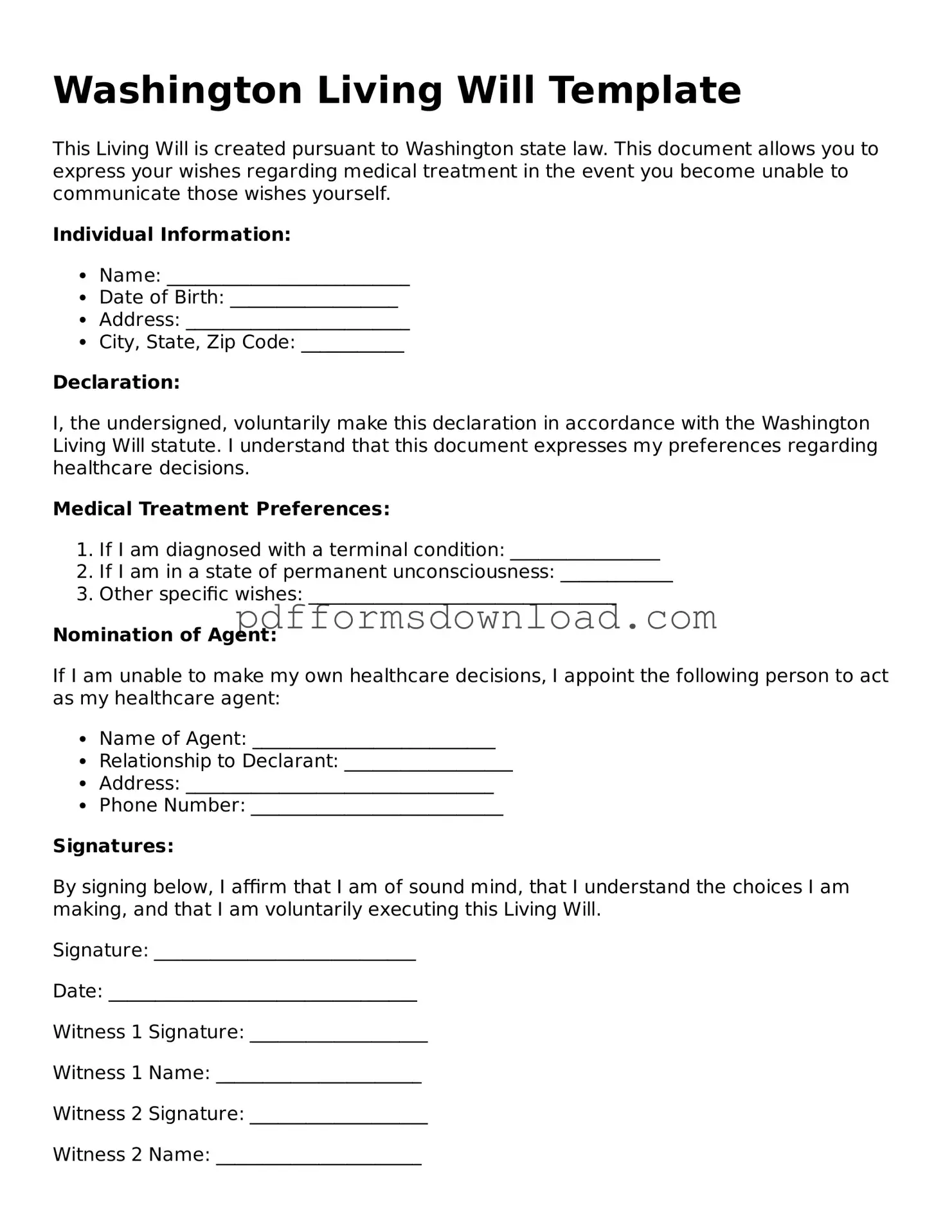What is a Washington Living Will?
A Washington Living Will is a legal document that allows you to express your wishes regarding medical treatment in case you become unable to communicate your preferences. It specifically addresses situations where you are terminally ill or in a persistent vegetative state, guiding your healthcare providers on what actions to take regarding life-sustaining treatments.
Who can create a Living Will in Washington?
Any adult who is at least 18 years old and of sound mind can create a Living Will in Washington. It’s important that the individual understands the nature of the document and the decisions being made.
How do I create a Living Will in Washington?
To create a Living Will, you can use a template or form that complies with Washington state laws. You need to fill it out, sign it, and have it witnessed by two adults who are not related to you and do not stand to gain from your estate. Alternatively, you may also choose to have it notarized.
Can I change or revoke my Living Will?
Yes, you can change or revoke your Living Will at any time as long as you are of sound mind. To revoke it, you can destroy the document, create a new one, or inform your healthcare provider and family members of your decision.
What should I include in my Living Will?
In your Living Will, you should clearly state your preferences for medical treatment. This may include your wishes about life-sustaining treatments, resuscitation efforts, and pain management. You can also specify if you want to receive comfort care only.
Is a Living Will the same as a Durable Power of Attorney for Healthcare?
No, a Living Will and a Durable Power of Attorney for Healthcare are different documents. A Living Will focuses on your medical treatment preferences, while a Durable Power of Attorney allows you to appoint someone to make healthcare decisions on your behalf if you are unable to do so.
Do I need a lawyer to create a Living Will?
No, you do not need a lawyer to create a Living Will in Washington. However, consulting with a lawyer may be beneficial to ensure that your document accurately reflects your wishes and complies with state laws.
Where should I keep my Living Will?
Keep your Living Will in a safe but accessible place. It’s a good idea to share copies with your healthcare provider, family members, and anyone you trust to make medical decisions for you. This ensures that your wishes are known and can be followed when needed.
What happens if I don’t have a Living Will?
If you do not have a Living Will and become unable to communicate your wishes, healthcare providers will make decisions based on what they believe is in your best interest. This may not always align with your personal preferences, which is why having a Living Will is important.
Can I use a Living Will created in another state in Washington?
A Living Will created in another state may be honored in Washington, but it must meet the legal requirements of Washington state law. It’s advisable to review it and possibly create a new one that complies with local regulations for clarity and peace of mind.

